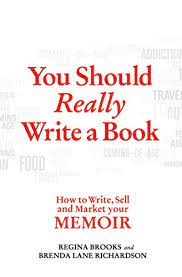Javier (not his real name) contacted me for memoir writing advice because he had a story to tell. And he wasn’t sure he knew how to tell it.
| This book will be about navigating my life as a black, gay man. It will address my coming out experiences, gay stereotypes, getting involved with men who are considered down low (men who sleep with men, but are married or in a companionship with women) and homophobia in the church, particularly the black church. Also, battling depression, a mental issue that affects many gay men. Basically I want this book to serve as a source of motivation for those struggling with their sexuality and wanting to live in their truth. |
I read that and knew this book needed to be written. The only question in my mind was how? So we spoke by phone.

Javier thought he wanted a ghostwriter. His goal is to become a motivational speaker and inspire others, the way he’d been inspiring his friends, the people in group therapy and an occasional stranger who crossed his path.
How do motivational speakers write their books? Don’t they hire ghostwriters?
Well, yes, many do, but that doesn’t mean it’s how to write your memoir.
My memoir writing advice? When I discovered Javier had about $2,000 in mind, I told him to save his money. As in save up. Not for a writer but for an editor.
Earlier in our conversation he’d told me about his A’s in English, the feedback that people enjoyed his writing, were moved by it.
“Write your own memoir,” I told him. And then I told him how to write a memoir:
Read great memoirs:

- Anything by Augusten Burroughs
- Any memoir by Mary Karr
- Men We Reaped by Jesmyn Ward
Of course, I’m tempted to add others, Educated or The Glass Castle, or even to read more memoirs myself, memoirs that might particularly touch this young man, but I stop myself. Three’s enough for now.
We want you writing, too. Not just reading!
Read great books about writing memoir:

- Mary Karr’s The Art of Memoir: Karr’s humorous and confessional style come through here, as in all her memoirs, making for an entertaining read, as well as an instructional one.
- Stephen King’s On Writing: part memoir and part writing instruction, this book offers some of King’s best advice on writing and shows that a memoir need not be long to be potent.
- Regina Brooks’ You Should Really Write a Book, which teaches you how to write, market and sell your memoir.
Start writing. Use one of these memoir writing books as instructional: write as you read.
There aren’t many rules. Here are a few to get you started.

- Don’t start at your birth.
- Don’t start with where you dad was born.
- Don’t start with a generic summary of things that happened often.
- Instead, begin with one specific moment in time, in a particular place. In other words, ground us, your readers, in time and space.
- It’s not a bad idea to have an outline. Gather some sense of the stories or scenes you want to share, in some kind of order that feels organic or juicy or potent. But know that your outline will probably change, maybe dramatically. Mary Karr so aptly calls memoir an “art” for a reason. Be flexible.
- And do you need to write it in order of the outline? No. That’s the beauty of an outline. You can start wherever you feel led in the moment, whatever scene excites you right now, and yet your outline gives you a feelng of security, that you have a spot in the book to place it. Later, much later, you can spread the papers across your dining room floor, as my friend, the writer Stuart Horwitz, does in his book architecture method. But for now, rest in the comfort of your rough outline. Some structure is a good thing. It’s the bowl to pour your soup into so the soup doesn’t stain your tablecloth or burn your lap.
Get Support for Your Memoir Writing & Create Community

- Find or start a memoir writing circle:
- Find an accountability partner who is also writing memoir: Schedule a regular time, at least once a week, when you will answer 5 simple questions together in order to stay on track with writing. Don’t coach each other. Don’t spend time talking your partner into writing or changing. Just answer the 5 questions. It shouldn’t take more than 10-15 minutes and these 5 questions will greatly empower you to stay on track and write, write, write.
- Subscribe to my newsletters and author interviews. By receiving a weekly newsletter or author interview about book writing, and by opening that email, you keep that book alive in your psyche, support making the time to write, learn more and experience being part of a writing community.
- Ask questions, make comments: If a current article doesn’t address your questions or situation, search the blog for an article that meets you where you are, or ask your questions anyway, on any post, and I will answer.
- Join a Group: For some people, social media can be a distraction. For others, it offers community, accountability a nd other forms of support. So, know what works for you, and if you need a little extra support and community, check out my Facebook group: Write and Create with Lisa Tener.
A few more things

- Save your money: You’ll want a quality editor once your book is written—first, for developmental editing, then for line editing. Really, save up. Put something in your “for memoir editing” jar every single day. Javier is giving himself 18-24 months to write his book. You can store up a lot of money in 730 days!
- Read this post about keeping your writing momentum.
Do you have any advice for Javier? Or just a few words of encouragement? Please share them below. Have questions about a memoir you’re writing? Just ask.



 Experiment with syntax: try super-short sentences or paragraphs in one chapter. Play with rhythm. Write a prose poem in one chapter. Or think jazz in Paris, African beats in Morocco.
Experiment with syntax: try super-short sentences or paragraphs in one chapter. Play with rhythm. Write a prose poem in one chapter. Or think jazz in Paris, African beats in Morocco. He wondered though:
He wondered though:




